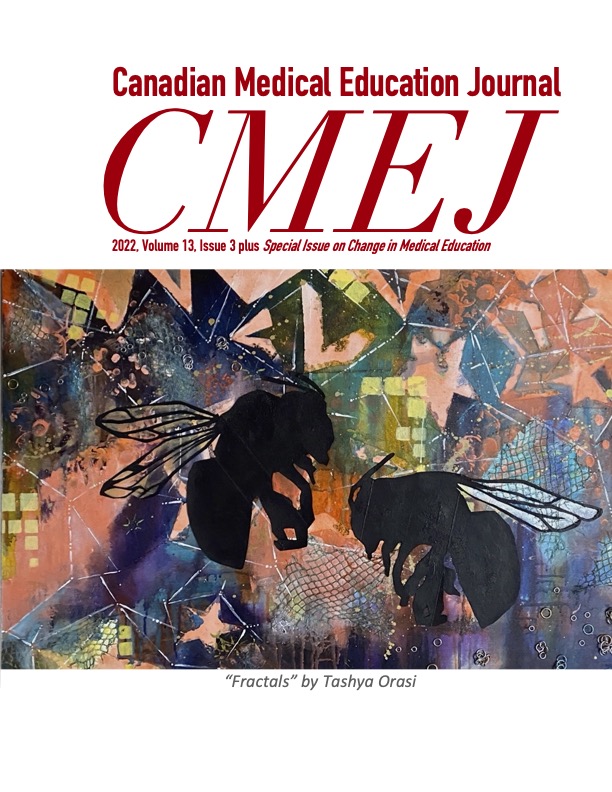Validity as a social imperative: users’ and leaders’ perceptions
DOI:
https://doi.org/10.36834/cmej.73518Abstract
Introduction: Recently, validity as a social imperative was proposed as an emerging conceptualization of validity in the assessment literature in health professions education (HPE). To further develop our understanding, we explored the perceived acceptability and anticipated feasibility of validity as a social imperative with users and leaders engaged with assessment in HPE in Canada.
Methods: We conducted a qualitative interpretive description study. Purposeful and snowball sampling were used to recruit participants for semi-structured individual interviews and focus groups. Each transcript was analyzed by two team members and discussed with the team until consensus was reached.
Results: We conducted five focus group and eleven interviews with two different stakeholder groups (users and leaders). Our findings suggest that the participants perceived the concept of validity as a social imperative as acceptable. Regardless of group, participants shared similar considerations regarding: the limits of traditional validity models, the concept’s timeliness and relevance, the need to clarify some terms used to characterize the concept, the similarities with modern theories of validity, and the anticipated challenges in applying the concept in practice. In addition, participants discussed some limits with current approaches to validity in the context of workplace-based and programmatic assessment.
Conclusion: Validity as a social imperative can be interwoven throughout existing theories of validity and may represent how HPE is adapting traditional models of validity in order to respond to the complexity of assessment in HPE; however, challenges likely remain in operationalizing the concept prior to its implementation.
Downloads
Published
Issue
Section
License
Copyright (c) 2019 Mélanie Marceau, Christina St-Onge, Frances Gallagher, Meredith Young

This work is licensed under a Creative Commons Attribution-NonCommercial-NoDerivatives 4.0 International License.
Submission of an original manuscript to the Canadian Medical Education Journal will be taken to mean that it represents original work not previously published, that it is not being considered elsewhere for publication. If accepted for publication, it will be published online and it will not be published elsewhere in the same form, for commercial purposes, in any language, without the consent of the publisher.
Authors who publish in the Canadian Medical Education Journal agree to release their articles under the Creative Commons Attribution-Noncommercial-No Derivative Works 4.0 Canada Licence. This licence allows anyone to copy and distribute the article for non-commercial purposes provided that appropriate attribution is given. For details of the rights an author grants users of their work, please see the licence summary and the full licence.











